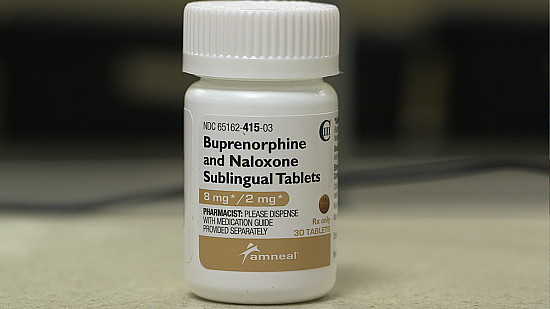Propofol: the drug that killed Michael Jackson
ARCHIVED CONTENT: As a service to our readers, Harvard Health Publishing provides access to our library of archived content. Please note the date each article was posted or last reviewed. No content on this site, regardless of date, should ever be used as a substitute for direct medical advice from your doctor or other qualified clinician.
If you’ve been following the manslaughter trial of Michael Jackson’s personal physician (not surprisingly, the Los Angeles Times has had the most complete coverage), today’s guilty verdict wasn’t a surprise.
Prosecutors built a strong case that the 50-year-old “king of pop” died after Dr. Conrad Murray had given Jackson a large dose of propofol (pronounced PRO-poe-fall), a powerful anesthetic, to help him sleep and then left him unattended.
Murray’s defense team spun a theory that Jackson gave himself the lethal dose.
Either way, propofol was at the heart of the case. The Los Angeles County coroner had concluded that Jackson died from “acute propofol intoxication” on June 25, 2009, and Murray’s trial featured lots of testimony about the drug.
Even if propofol isn’t quite a household word, it’s a lot more familiar than it used to be.
The ‘milk of anesthesia’
I wanted to learn a bit more about propofol, so I met with Dr. Linda Aglio, an anesthesiologist at Harvard-affiliated Brigham and Women’s Hospital in Boston and an associate professor of anesthesiology at Harvard Medical School The hospital’s anesthesiology department is a warren of offices on the same subterranean level as the operating rooms.
When Dr. Aglio showed me a small bottle of propofol, the “milk of anesthesia” nickname made perfect sense. Propofol doesn’t dissolve in water so it comes in a white, oily solution and must be refrigerated before it’s used. The solution consists of soybean oil, fats purified from egg yolks, and glycerol.
Allergic reactions occur, although propofol is generally considered safe for people with egg allergies because people are usually allergic to the proteins in eggs, not the fat.
Dr. Aglio explained that the reason most of us haven’t heard of propofol until the Jackson case is that, aside from abuse cases, propofol is used exclusively by anesthesiologists. It’s not the kind of drug that you can pick up at CVS or Walgreens, or one that you’re going to see advertised on television.
Replaced sodium thiopental
But in anesthesiology circles, propofol is a hot item: “We’re using it like crazy,” Dr. Aglio told me.
Propofol is used as an “induction agent”—the drug that causes loss of consciousness— for general anesthesia in major surgery. In lower doses it is also used for “conscious sedation” of patients getting procedures on an outpatient basis at ambulatory surgery centers.
The major reason that propofol has become the induction agent of choice is that the traditional agent, a barbiturate called sodium thiopental, is no longer available, Dr. Aglio explained. Sodium thiopental (the old trade name, Sodium Pentothal, might be more familiar) has been one of the drugs used to execute people with lethal injections, and various groups and countries opposed to the death penalty have used legal and other sorts of pressure on suppliers.
For general anesthesia, anesthesiologists use a large “bolus” of between 100 and 200 milligrams of propofol to put patients under and then a continuous infusion of much smaller amounts (in the micrograms per minute, with the exact amount depending on the person’s weight) to keep patients under. The drug is infused into a vein, and there’s often some pain as it goes in, which is why she was reluctant to use it at first, Dr. Aglio said. To prevent that pain, anesthesiologists will often an inject a local anesthetic like lidocaine before the intravenous administration of propofol, she said.
Like many sedating anesthetics, propofol lowers blood pressure and suppresses breathing, so the heart function and breathing of patients need to be constantly monitored. “I won’t leave a patient unattended for a second,” said Dr. Aglio.
When she read about the circumstances of Michael Jackson’s death, her first reaction was shock: “I was surprised that any doctor taking care of him would leave him alone.”
‘Like a switch’
Propofol is also a very good anesthetic for milder sedation used for outpatient surgery because it puts people in a semi-conscious, drowsy state. “It has a very quick onset, but also wears off quickly. It’s like a switch. There’s little, if any, anesthetic hangover. And it doesn’t cause nausea or vomiting. And there is some loss of memory, which is a good thing,” explained Dr. Aglio.
Potential for abuse
So there’s a lot of propofol around these days and, as the Jackson case sadly shows, opportunities exist for abuse, with possibly fatal consequences.
Michael Jackson was apparently desperate to sleep, and there are plenty of people like him who might want to get their hands on propofol so they could use it as a powerful sleep aid.
But a review article on the potential for propofol abuse published last year argued persuasively that if propofol were only sedating, without having any other effects, there would be “little recreational incentive” to abuse it. The authors—Courtney Wilson, Peter Canning, and E. Martin Caravati, three doctors in the Division of Emergency Medicine at University of Utah—noted that volunteers in experimental studies have found propofol’s effects pleasurable and described the sensation as a high or like being drunk. They also cite case reports about propofol giving anesthesia patients good dreams and instances of sexual disinhibition with “amorous advances and physical embraces by patients who are awakening from propofol anesthesia.” The review also mentions that people develop a tolerance to propofol, so they end up needing more of it to achieve the same sensation. And the fact that it’s so short-acting might be an advantage for abusers, because they can come off the high quickly, which could make illicit use easier to hide.
Searching the medical literature between 1992 and 2009, the Utah doctors found 45 published cases of propofol abuse—40 of which involved medical professionals—and 18 deaths. When academic anesthesiology training programs were surveyed a few years ago, 23 out of 126 (18%) reported that incidents of propofol abuse or diversion had occurred for the 10-year period between 1995 and 2005.
So propofol abuse definitely occurs, but it’s also not that common—at least so far. The reviewers’ take-away is that propofol should be regulated as a controlled substance like other strong anesthetic drugs; Dr. Aglio agrees.
Whether tighter regulation would have made a difference for Michael Jackson is doubtful; the king of pop had means to get around rules, and enablers like Conrad Murray to help him. But obviously we will never know.
About the Author

Peter Wehrwein, Contributor, Harvard Health
Disclaimer:
As a service to our readers, Harvard Health Publishing provides access to our library of archived content. Please note the date of last review or update on all articles.
No content on this site, regardless of date, should ever be used as a substitute for direct medical advice from your doctor or other qualified clinician.
















